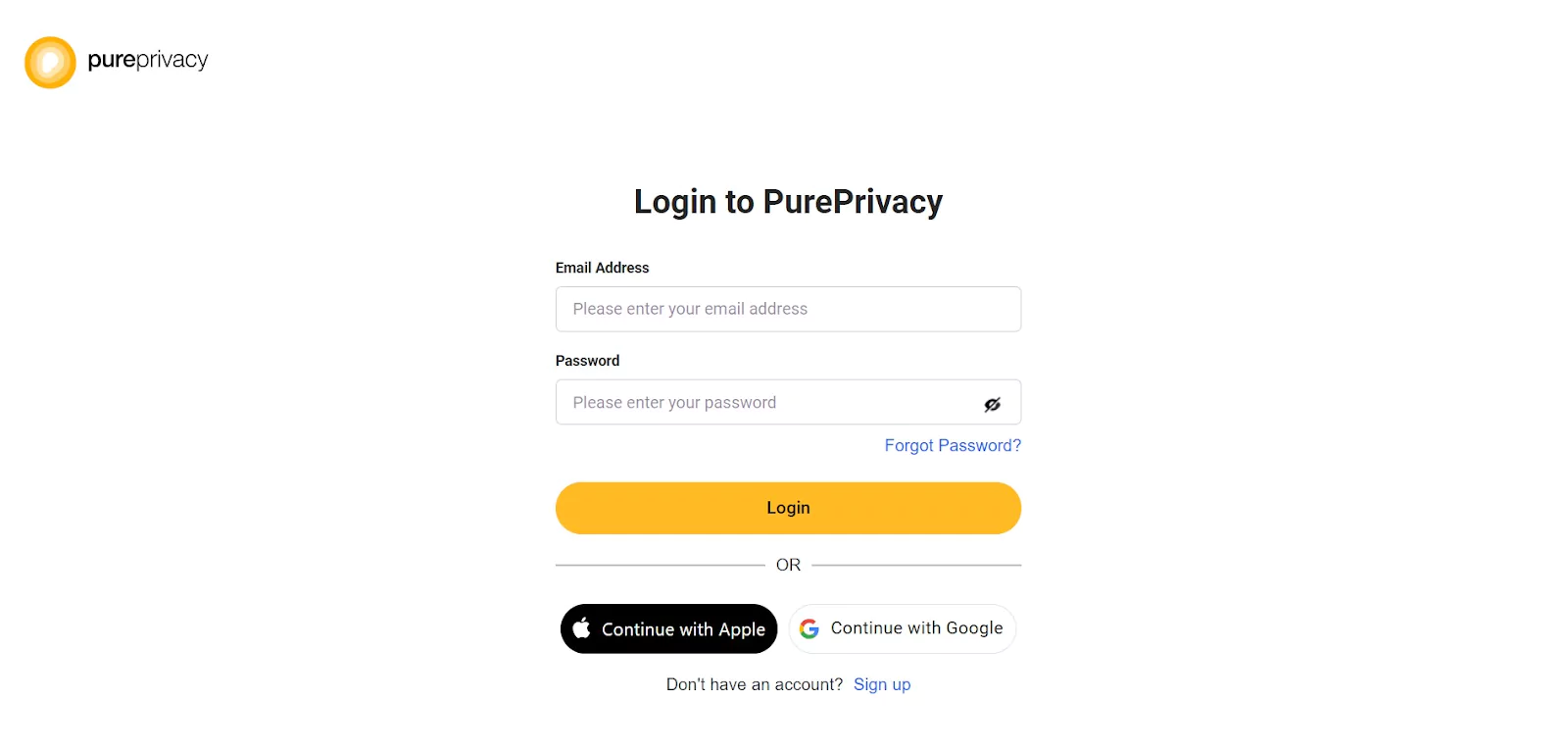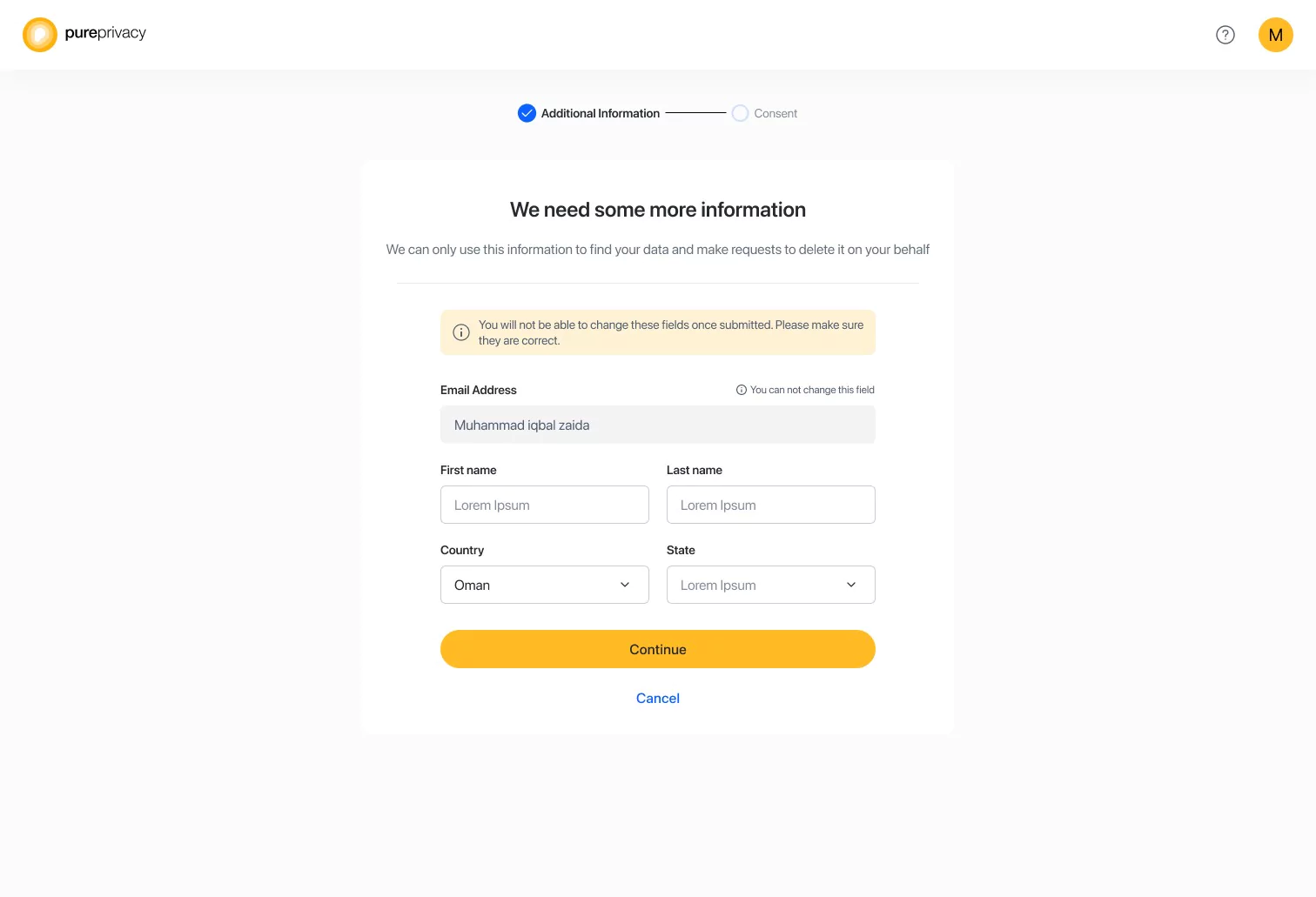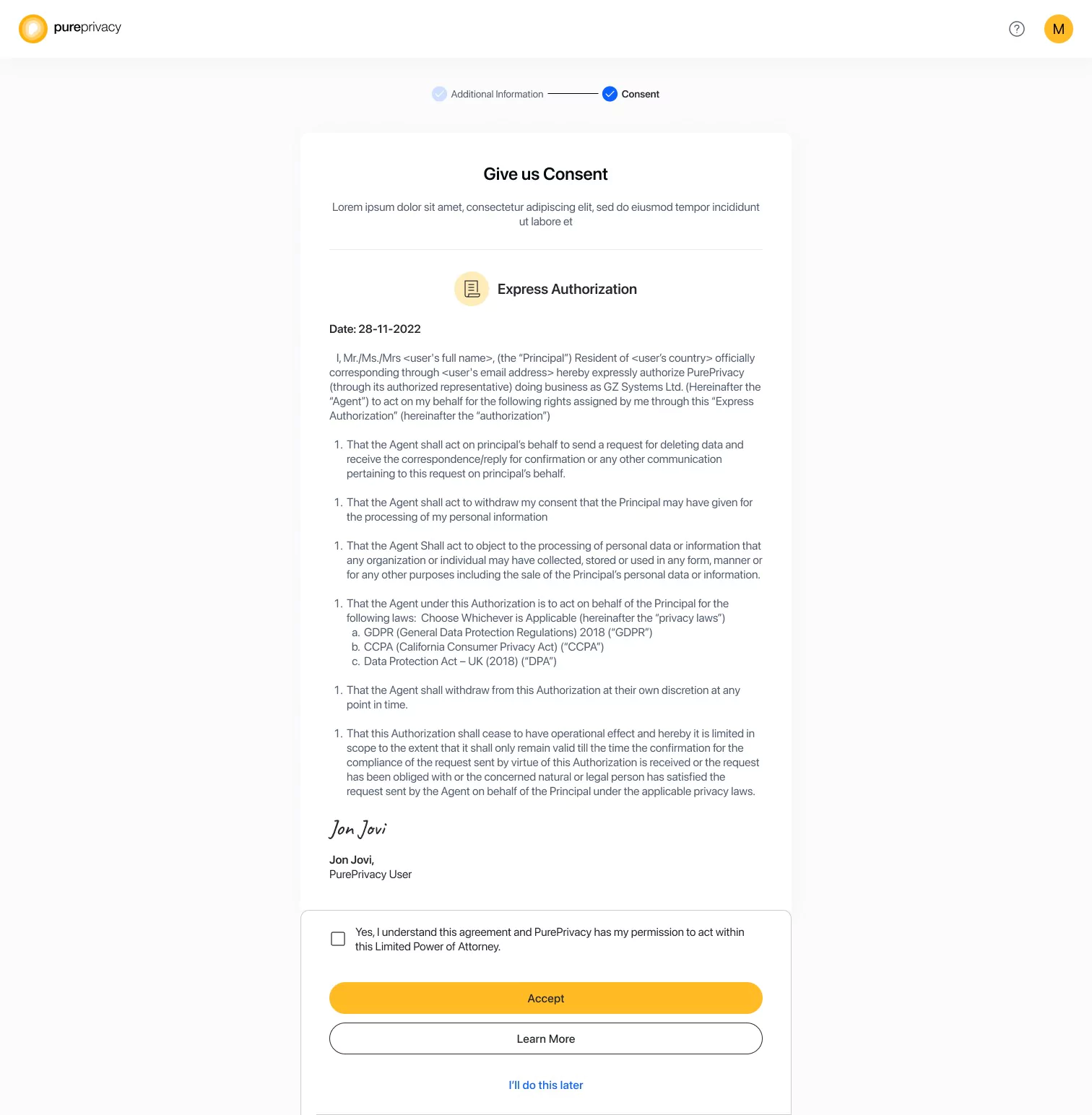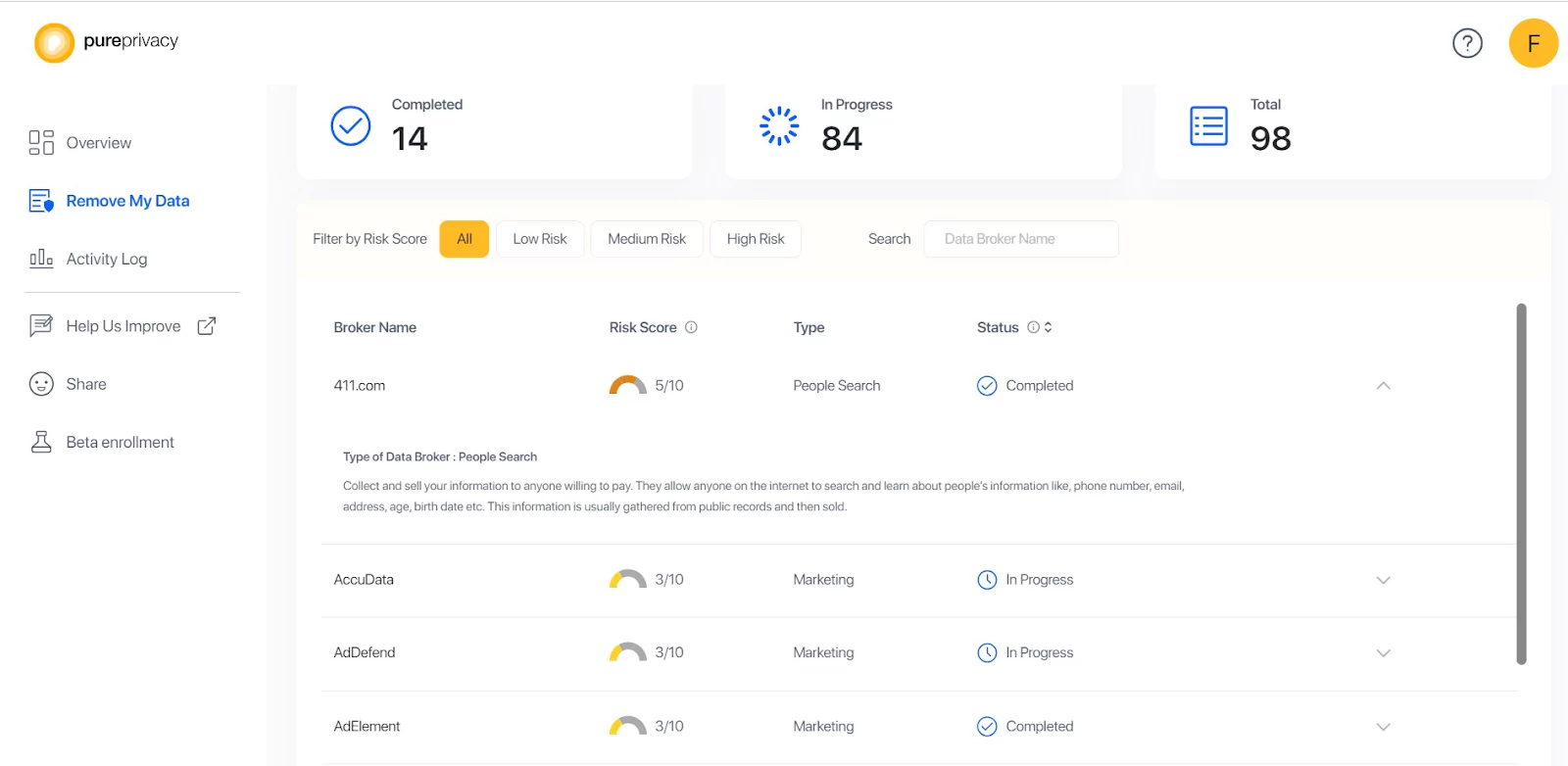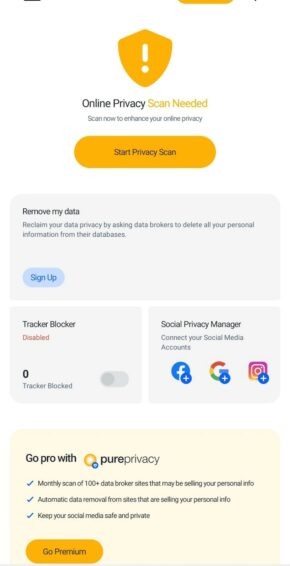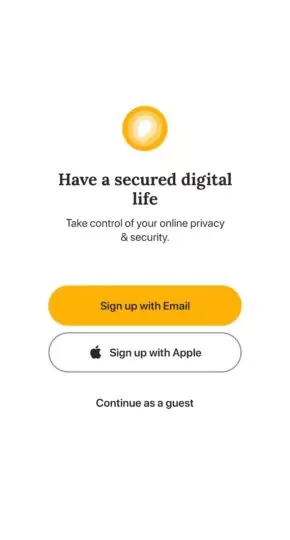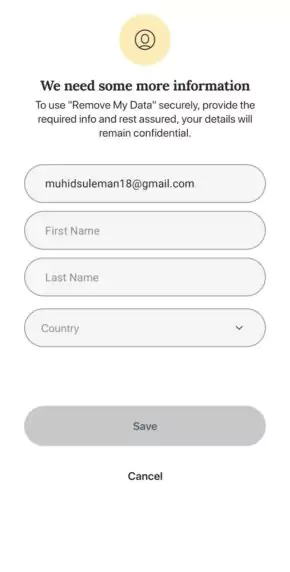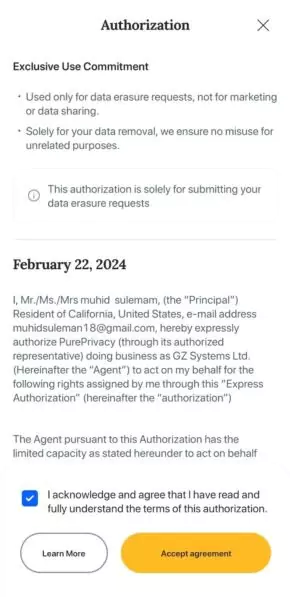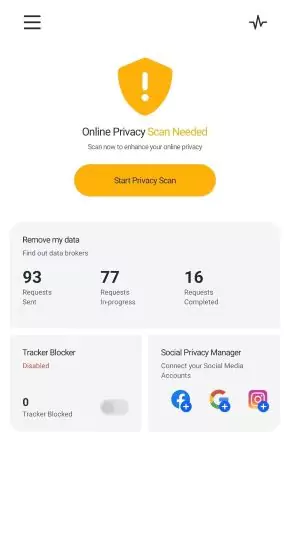Table of Content
- What Is T-Mobile?
- What Data Is Gathered And Stored By Your T Mobile?
- How Does T-Mobile Use Your Data
- What Happens If I Choose Not To Opt Out Of T Mobile?
- Step-by-Step Guide on How to Opt-Out of T-Mobile
- Automate the Opt-Out Process
- Steps to Opt-Out Using PurePrivacy
- Frequently Asked Questions (FAQs)
T-Mobile sold millions of records to competitors in 2009, marking the start of the company's cybersecurity nightmare.
By 2023, a series of hacks had compromised approximately 77 million consumers in 2021 and may have compromised 37 million accounts in 2023.
T-Mobile faces security issues, from a 2017 site flaw to employee data finding its way onto a hacker forum.
Are you tired of T-Mobile disclosing your details?
These simple methods will help you regain control! Learn why it's more important than ever to protect your online privacy.
KeyTakeaways
- T-Mobile's and other mobile networks could contain weaknesses that could be exploited.
- There could be security hazards if mobile devices used on T-Mobile's network are not sufficiently secured.
- You may be exposed to a variety of hazards by security flaws in T-Mobile or third-party apps.
- With PurePrivacy, you can protect your online privacy.
What Is T-Mobile?
Deutsche Telekom AG subsidiary T-Mobile US Inc. (T-Mobile) offers telecommunications services.
The corporation offers wireless telecom services in addition to a wide range of other services, such as phone, text messaging, video calling, and data communications.
It caters to wholesale, prepaid, and postpaid clients. The corporation uses the T-Mobile and Metro by T-Mobile brands to market its goods and services.
What Data Is Gathered And Stored By Your T Mobile?
Although service providers (such as AT&T, Sprint, Verizon, and T-Mobile) gather data, they are cautious about disclosing the precise types of data they get, why they collect it, or how long they keep it.
Providers of smartphone services at the very least, get the following data:
- Calls, both in and out: the numbers you dial, the numbers you get called from, and the length of the call.
- Text messages both coming in and going out: the phone numbers you text and receive texts from.
- How frequently do you use the Internet or check your email?
- Your current location.
How Does T-Mobile Use Your Data
Apart from the information gathered by your smartphone service provider, you should also be conscious of any potential privacy concerns related to the gathering or sharing of:
- Any images or videos you shoot with your phone.
- Information regarding the content of the emails and texts you send and receive.
- Information about the phone call, including who and who you are calling, as well as when and how long it lasted.
- The contacts that are saved on your mobile device.
- Passwords.
- Financial information.
- What you keep on the calendar on your phone.
- Your age, gender, and location.
What Happens If I Choose Not To Opt Out Of T Mobile?
You'll pay an additional $10 monthly to switch to a more recent plan.
Enabling Auto Pay will save you $5 a month, but are you comfortable giving T-Mobile access to your bank account information?
Customers are saying that when they log into their T-Mobile accounts, they can see other users' personal information, in what seems to be the latest in a string of security lapses.
Sensitive data that is accessible includes credit card numbers, home addresses, purchase histories, and current credit balances.
Step-by-Step Guide on How to Opt-Out of T-Mobile
Dial the official customer service number, or if you are using a T-Mobile device, 611 for customer help.

To opt-out, use T-Force via direct or private messages on Facebook or Twitter (X).
Use the T-Mobile app's App Chat feature to get live customer support support.
There is no stated period for opting out.
To initiate a chat with support, use the official T-Mobile app, log in, and tap the chat icon in the upper-right corner.
T-Mobile customers can opt out of arbitration within 30 days of the new line of service activation.
You may choose not to participate in arbitration by filling out the opt-out form on this page or by providing the necessary details by calling 1-866-323-4405 toll-free.

Automate the Opt-Out Process
You can take charge of your online image with PurePrivacy and protect yourself against prying eyes, identity theft, and cyberattacks.
Data deletion from brokers is a hectic process, PurePrivacy helps to opt out automatically.
How Does PurePrivacy Work:
Stop Targeted Ads and Protect Yourself
Data brokers collect and sell your browsing habits, search history, and personal information, creating a detailed profile that advertisers use to target you. PurePrivacy restricts them to stop your information being shared.
Your Data Removal Solution
PurePrivacy's Remove My Data service empowers you to take back control. With your permission, PurePrivacy acts on your behalf to remove your data from a vast network of data brokers (over 200!).
Simple Process, Powerful Results
You'll see a clear list of the brokers involved, along with the types of data they collect (e.g., address, financial details) and a risk score based on the data's sensitivity. A user-friendly dashboard keeps you informed on the progress of your requests.
Steps to Opt-Out Using PurePrivacy
Frequently Asked Questions (FAQs)
-
What is the T-Mobile Opt-Out Policy?

You have the option to stop receiving any or all of our direct mail, phone, text, or email marketing communications. And whether you're a customer or not, it remains true.
-
Can I use PurePrivacy without an account?

Yes, you are free to use PurePrivacy in a guest capacity. By connecting your social media accounts, you may use this to search them for data breaches and receive tips on how to protect your online privacy.
-
How can I opt out Of T-Mobile data sharing?

Click the "login" option and sign into your account for the optimal experience. Under "Do Not Sell or Share My Personal Information," you have two choices.
To restrict the amount of information we provide to other businesses about you, change the "Do Not Sell or Share" setting from "ON" to "OFF," or from magenta to grey. -
Why is opting out a good idea?

The user's action of stating that they no longer want their data handled is known as opting out. The opt-out lets you know that they don't want you to process their data going forward, assuming you already processed some of it.
Protect Your Online Activities & Footprints
It's easy to opt out of T-Mobile, just tell the agent and ask for the code; many customers have done this without any problems.
You now can control how they want to be treated privately on the T-Mobile network.
The other way to protect your data from stealing is to connect your t mobile with PurePrivacy.


